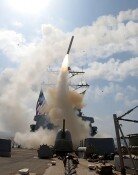[Editorial] Steps Needed to Ratify FTA
[Editorial] Steps Needed to Ratify FTA
Posted November. 10, 2009 09:46,
Korea and the United States signed a free trade agreement in June 2007. After delaying parliamentary ratification for more than two years, the two sides have begun taking steps to get the deal approved. The head of the U.S. National Economic Council, Lawrence Summers, said Friday, The U.S. government has prepared itself for the ratification of the Korea-U.S. FTA. The Obama administration, however, has taken a passive stance toward the agreement and certain figures in Washington say Seoul must open up the Korean auto market further. Given that, Summers comment can definitely be considered as significant progress. Seoul also plans to discuss the matter with President Obama, who is scheduled to make a two-day visit to Korea from Nov. 18.
A Korean proverb says, Nothing is complete without the finishing touches. The bilateral agreement is no different. Even if the agreement benefits both nations, it is useless without effectuation. It would be a huge misfortune if the two nations cannot benefit from their agreement designed to raise their exports and strengthen their strategic partnership. Certainly, the two nations have been preoccupied with the launch of new administrations and dealing with the global economic crisis. Nevertheless, if they keep hesitating on ratification, their determination to have the deal take effect would be in doubt. If Washington fails to make a sincere effort to ratify the accord, it has no right to urge the expansion of global trade at the Group of 20 summit in Korea next year.
Aware of trade unions, President Obama has taken a passive stance on free trade. In September, he even raised tariffs on imported tires from four percent to 35 percent to prevent cheaper Chinese tires from flooding the U.S. market. If he wants to reaffirm U.S. support for free trade, he should prove it in his Asia tour that starts Thursday and ends a week later.
When Korea and the European Union tentatively signed their free trade agreement Oct. 15, U.S. media criticized the Obama administration, saying the world is moving forward while the U.S. acts like Hamlet. According to a survey conducted by Washington, 92 percent of industries to be affected by the deal supported it. Only a few including carmakers opposed the deal. Moreover, 88 congressmen recently urged Obama to take steps to have Congress consider ratifying the deal before his summit with President Lee Myung-bak. Against this background, it is high time that Congress deal with the accord.
Koreas National Assembly should also rush to ratify the deal at its plenary session. A free trade deal between Korea and India will take effect in January next year. Moreover, the Korea-EU agreement will start implementation between July and August the same year. So the Korea-U.S. pact should also take effect next year. When Korea signed the deal with the U.S., it was the envy of its neighbors. If the National Assembly hesitates to ratify the accord, the countrys rivals will laugh at Korea.







